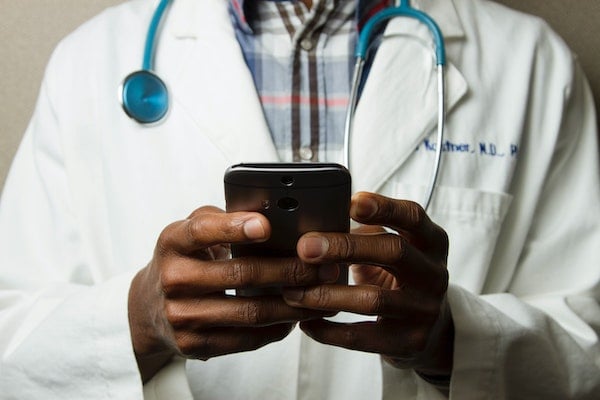Published on
How a Health Sciences University Faces Crisis

Health care workers are more essential than ever in this pandemic, and institutions specialized in health services are faced with their own challenges for the high demand role. These programs are extremely hands-on and are now being moved onto a computer screen or are shut down all together. But faculty and leaders are finding ways to deliver programming that continues to fit learner and industry needs. In this interview, Nancy Rubin discusses the educational impact the pandemic has on her university’s learners, the financial impact, and how Northwestern Heath Sciences University is adapting their programs for the future.
The EvoLLLution (Evo): What role has continuing in distance ed played in supporting the institution-wide transition to remote learning?
Nancy Rubin (NB): They’ve certainly played a role in both leadership and support. In leadership, you’re setting the direction and helping explain what needs to happen. Then, the support comes in because you have to be extremely supportive to spur any kind of change. It’s a two-pronged role, especially for distance ed. In our situation, because we don’t have any fully online programs, we were able to utilize some of that discomfort to support some of our student experiences. We’ve also shifted our live events to a webinar format for our CE clients, which means you have to train staff on new technologies, too. So, there are a lot of opportunities to learn new skills in this interesting time. We’ve been super busy supporting both the academic side of the house and continuing to support our audience and partners.
Evo: Do you think the CE elements of the learner experience will transition over to the way more traditional facilities operate?
NR: Absolutely. Just by the nature of how faculties are teaching and how they have to connect and communicate now, they will be much likelier to integrate some of those new elements. Students can become easily overwhelmed if you don’t adopt these practices. The mindset of seeing students as people is one to which we need to be responsive. That mindset which traditionally resides in CE has very much transitioned to our faculty who are not experts at online or remote teaching. It’s not just about the content but also the communication.
Evo: How has the pandemic and the need for more frontline healthcare workers affected your approach to program design, launch and management?
NR: Since we’re focused on health sciences and natural health, a lot of our programs are extremely hands-on. We also operate a lot of clinics, both onsite and throughout the Minneapolis area, but many have been closed down. We donated a lot of PPE–almost everything we had–to the hospital. As we’re restocking, we’re thinking about what our programs will look like. Extremely hands-on programs impact everything you do. So, we switched to a lot of telemedicine–which clearly now has to be part of the curriculum. But we’re also required to view the institution as a business, and we can’t ignore needing multiple revenue streams.
Evo: Are you expecting a large impact on auxiliary revenue streams, and do you see CE playing a larger role in helping to bridge that gap?
NR: We definitely saw an impact on our clinics both onsite and in the community. We kept our bookstore and our Chinese art dispensary—which is like a pharmacy for people getting prescriptions through naturopaths–open. But those services are a lot harder to provide now. The revenue from our now-closed clinics, plus all of the opportunities for students to participate in hands-on education are big losses.
Evo: Given that you’re in a healthcare field, how are you guys preparing to scale in order to meet that demand that tends to come in the wake of a recession?
NR: We’re actually in a really good position. I was helping with the move into the online space even prior to the pandemic. This crisis solidified the fact that we need to get there quicker. We were already looking at things like public health and healthcare administration–and the value of those programs are only made much clearer and even more relevant now. People understand public health professionals’ roles. The programs we were looking to scale will be the perfect programs and delivery method to meet post-COVID-19 needs. Since we’re so small, we were looking to partner with an online program management (OPM) company. We’re now far down that path because we’ve been working on it for the last year. I think that for those just jumping on the bandwagon, it’ll probably be a little bit more difficult.
Evo: In going with an OPM, do you have concerns about the level of difficultly of transitioning those programs into university-owned offerings once you’re up and running in those various verticals?
NR: I think you have to go into it knowing what you’ve signed up for. But you wouldn’t go seeking OPMs looking at it that way because that’s not what they are. They’re long-term partnerships; they’re not there to get you up and running. You have to know what you’re looking for and make sure that it’s a partnership that benefits both organizations.
There will be a shift not only in the institutions but in students’ perspectives. They’re going to be looking more at certifications and stackable credentials rather than entering long-term commitments for fields that may not be employable when they’ve finished the program. You have to look at what you’re going to provide. It’s not just going to be about degree programs and what the universities want to offer. Instead it’ll be what the students are looking for, and they’re going to be a lot more cautious about debt.
Evo: How do you educate the market about the value of certificates, certifications and other non-degree offerings?
NR: There’s a lot of opportunity there. When you look at programs and their value, it’s about mapping the programs to employability. Although we’re don’t do competency-based education, our programs are competency-focused. You need to be able to explain the value of skillsets–there’s a lot more of that in the marketplace. Students are also more aware and educated consumers.
Evo: What does a modern university need to do to ensure they are able to deliver on the expectations of students who are conscious consumers?
NR: You need to have strong career services–offices that aren’t just a final recourse, but accompany students throughout their education. Also, strong advising is key. Make sure you can provide a full suite of services. There needs to be tutoring opportunities, mental health services, a full suite, a full package. When you offer programs, it’s not just about the content; it’s about serving students holistically and making sure that you can do it well.
Evo: Do you think some of the innovations and tools that have been introduced over the past month will be adapted and adopted into our post-pandemic new normal?
NR: Absolutely. Even though they were thrust into it, everyone sees the value of technology and how well it can be integrated to make communication collaboration happen. When it comes to course design and instructional design, all that becomes a lot more apparent and researched in the online space. You can’t just throw your content out there; you have to think about how you want to provide it to your students.
Evo: Is there anything you’d like to add about how you’re seeing this recession play out and what impact you believe it’ll have on the college?
NR: It’s going to impact all colleges, and we’re going to become a lot more agile. The college has multiple levels of plans, so it’s easy to execute when something like this pandemic happens suddenly. And all of those are good things. It’s amazing how the entire institution is working remotely. In addition to supporting the students, how do you shift an entire institution? It’s about using the systems yourself that you’re trying to teach the faculty how to teach with. This way, you have different solutions to different possible scenarios when encountering a problem of this scale.
This interview was edited for length and clarity.
Editor’s note: This interview was recorded on April 20, 2020.


